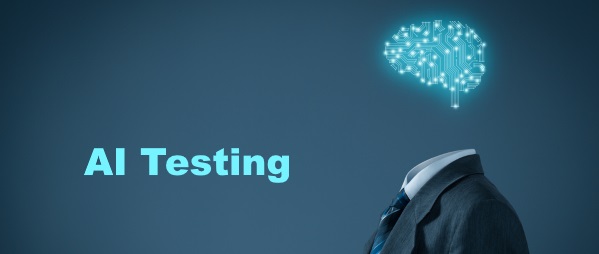Search posts by keywords:
Filter posts by author:
Related Reports
Related NEAT Reports
Other blog posts
posted on May 11, 2018 by Dominique Raviart

In the past three years, testing service vendors have been looking at how to adopt more automation and apply AI to testing. Accenture, meanwhile, has been approaching things from a different angle, looking at how to test AI software itself rather than applying AI to the delivery of testing services.
Here I look briefly at Accenture's approach to AI testing, which used a two-phase methodology called Teach and Test.
Teach phase: Identifying biased data
The broad principle of the Teach phase is to make the AI learn, iteratively, to produce correct output, based on a ML approach. Accenture highlights that before proceeding to this phase, a key priority is around data validation, in particular making sure the data used for teaching is not biased, as this would, in turn, introduce bias to the AI outcomes. One example is text transcripts from contact centers, that may well include emotional elements or preconceived ideas. Another is a claim processing operation, where there may be bias in terms of gender and age.
To prevent potential bias, Accenture uses a ML approach for clustering terms and words in the training data, and identifying which sets of data are biased based on the word clusters.
Curating the data also has the benefit of bringing a process approach to ML – processes that can then be communicated to regulatory authorities to prove how data is cleaned, how, and why.
One challenge in de-biasing data is that it reduces the level of data that can be used for training. So, Accenture differentiates between which parts of a data set need to be removed and which parts can be neutralized (i.e. by removing some of the bias). Accenture agrees with the client on which bias elements need to be removed and which ones can remain.
Test phase: Identifying defects
During the Test phase, Accenture’s priority is AI model scoring and evaluation. Here, the idea is that, even if Accenture does not know what the AI output of a single test input will be, it can still check the outputs of multiple inputs, taking a statistical approach.
This approach helps to identify the AI outputs that are materially different from the majority. If the AI model has defects that need to be fixed, Accenture will enhance the model and re-train it.
A first step for AI testing
Accenture formally introduced the Teach and Test methodology in Q1, and says it already has several AI testing projects in progress, an example being a virtual agent for the credit card processing activities of a financial services firm.
With Teach and Test, Accenture is providing a first step in the market for AI testing. And while the story of AI testing has yet to be written, two things are already clear:
First, manual testing will only be a marginal part of AI testing, as AI will require scale that manual testing cannot provide.
Second, with AI use cases such as virtual agents, the deterministic approach of test cases and test scripts is no longer relevant. In all likelihood, current testing software tools used in functional testing will not find their way into AI testing. This implies that the role of testers will continue to evolve, from functional testing towards technical and specialized expertise.
